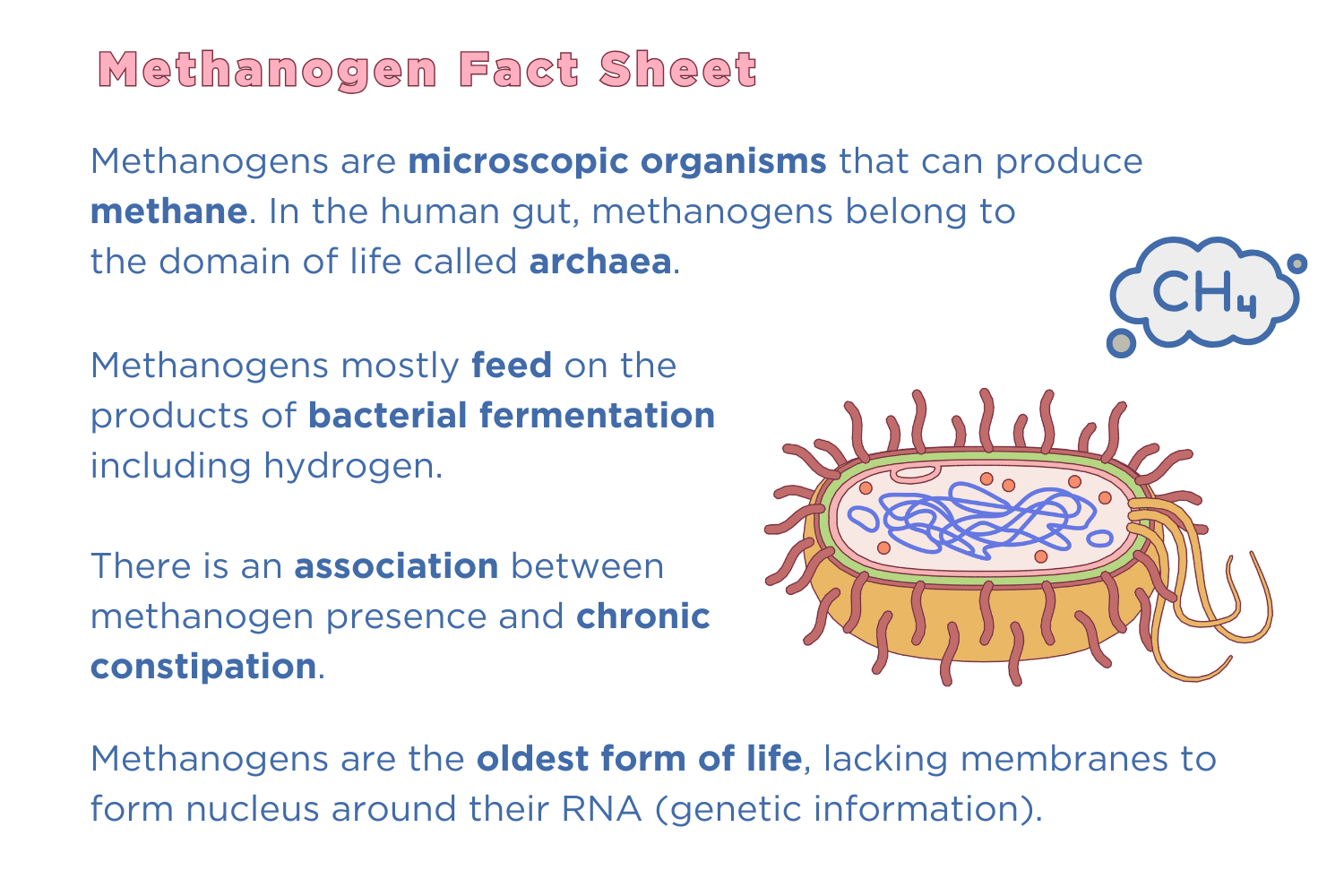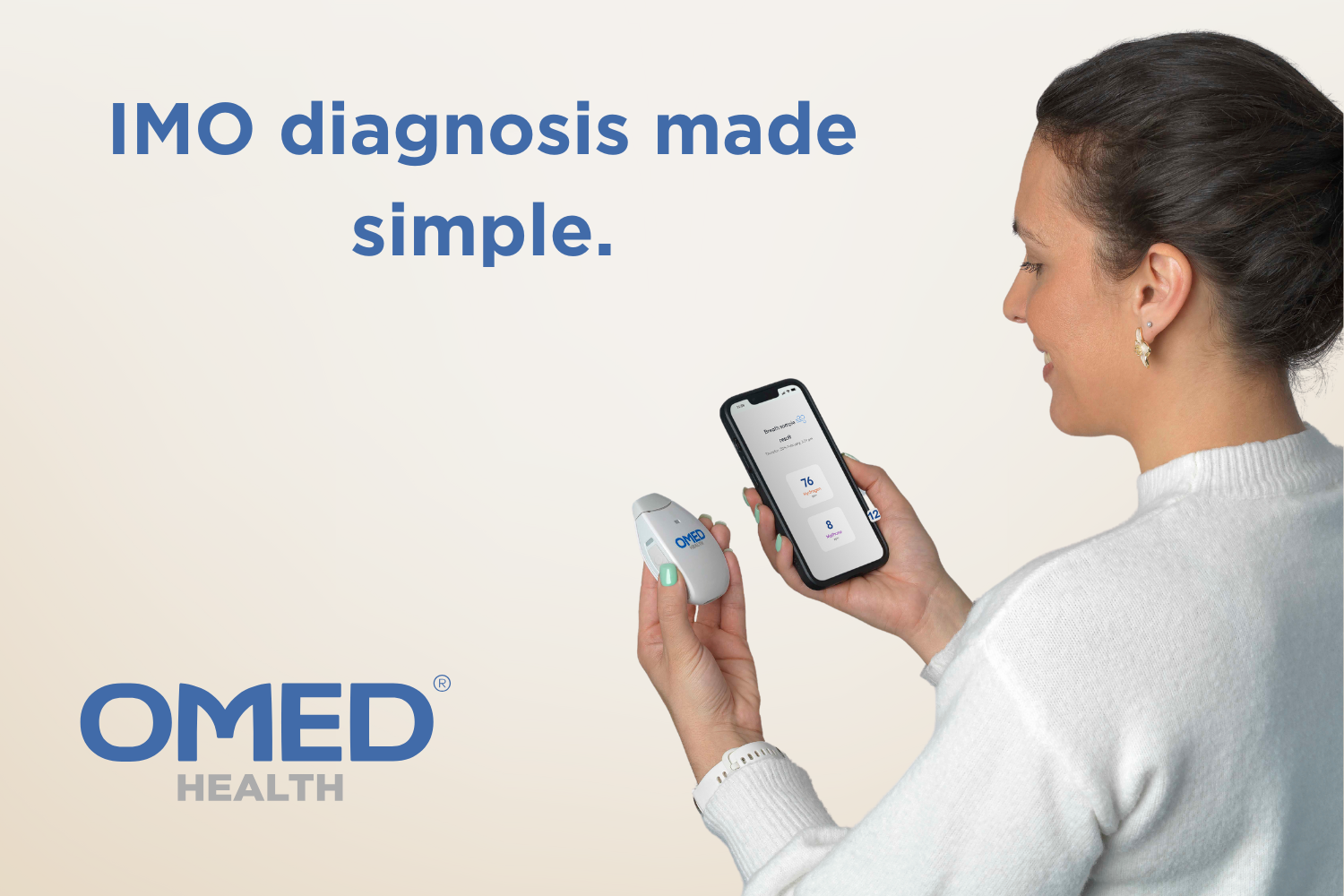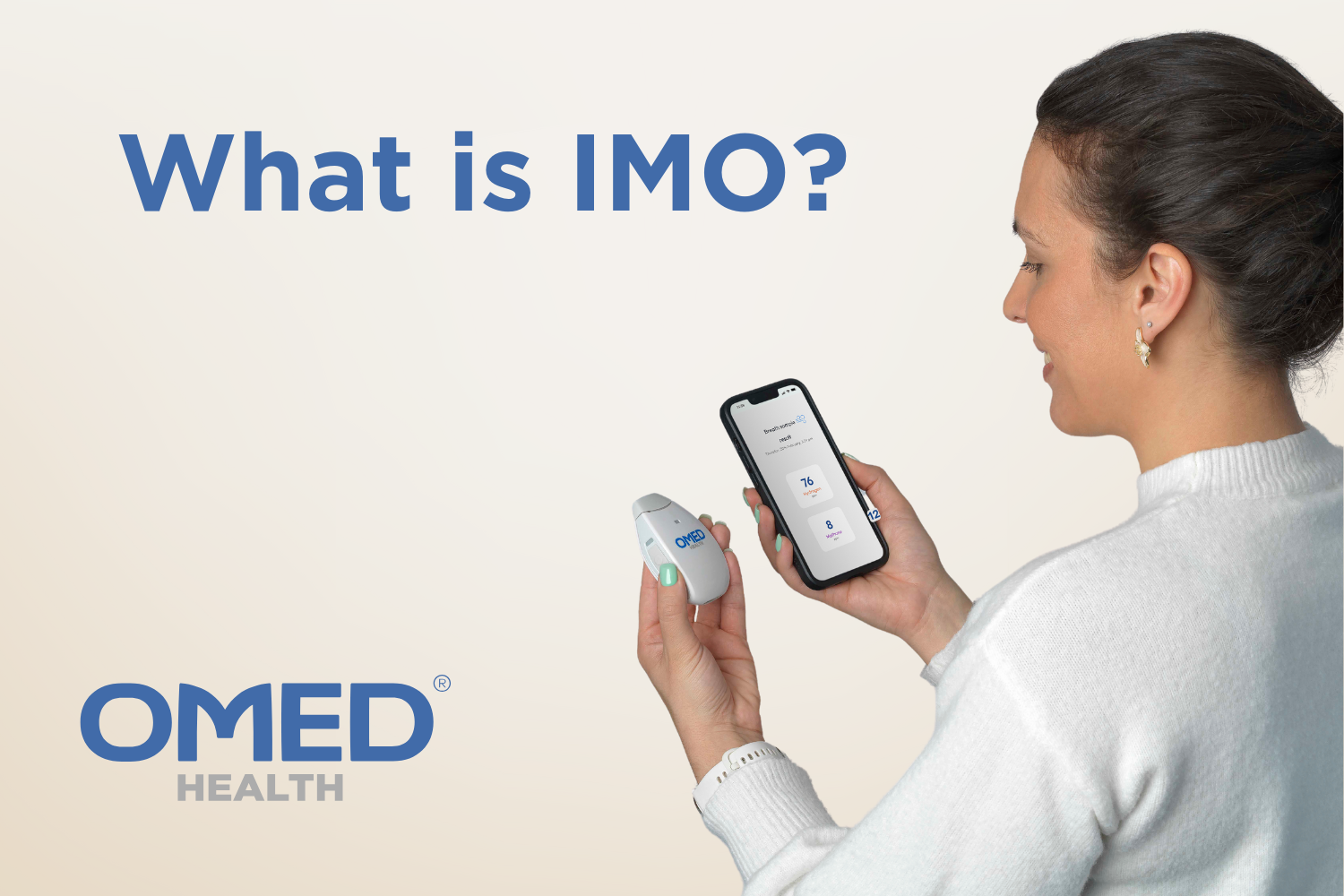What is IMO?
Intestinal methanogen overgrowth or IMO occurs when there are too many methane producing microorganisms present in the gut. These microorganisms are single-celled microbes called archaea. Whilst archaea naturally occur in the intestines, their colonies can sometimes overgrow, producing much more methane than normal. Hence the condition is called “intestinal methanogen overgrowth”.

IMO can sometimes be misdiagnosed as small intestinal bacterial overgrowth (SIBO) and was once known as a sub-type of SIBO (1). However, SIBO is caused by bacteria, not archaea, and it only occurs in the small intestine, whereas methanogens can be present throughout the entire gut. SIBO is also more commonly associated with diarrhea, where IMO patients usually present with constipation (2).
What are the symptoms of IMO?
IMO causes non-specific gut symptoms such as bloating and abdominal pain. It’s generally associated with slow gut transit and constipation rather than loose stools (3). If no breath tests are performed, it can be misdiagnosed as constipation predominant irritable bowel syndrome (IBS-C) (4). IBS is a complex disorder of the gut-brain axis that you can read about in detail in our eBook.
How is IMO diagnosed?
If you are experiencing digestive issues like bloating, constipation or abdominal discomfort, you might be wondering: how is IMO diagnosed, and could it be the root cause of your symptoms?
Although methane is found in 30-50% of adults, people with higher levels of methane production have also been observed to suffer from gastrointestinal symptoms more frequently (5).
The most reliable way to diagnose IMO is through a methane breath test, alongside a healthcare professional (6). This non-invasive test measures the concentration of methane in your breath, which directly reflects the activity of methane producing microbes in your gut.
Traditionally, this is performed in a doctor’s office. Yet, innovations in at-home gut health tests now allow you to monitor breath gases anytime, anywhere. insights into your digestive health without the need of an in-person doctor’s appointment. With the OMED Health Breath Analyzer, a medical grade device, you can easily measure hydrogen and methane levels in your breath anytime, from the comfort of your own home. If you’re based in the UK, your results will be reviewed by an OMED Health Doctor—providing expert analysis and a potential diagnosis of conditions such as Intestinal Methanogen Overgrowth (IMO). This makes it simple to track your gut health and get medical insight, all in one place.
The OMED Health Baseline Plan: Your First Step to a Gut Health Diagnosis
When you purchase your OMED Health Breath Analyzer and connect to the OMED Health App, you will be guided to begin the Baseline Plan, a structured two-week program designed to assess your digestive health and help determine whether you have IMO or if you require further tests for another condition such as Small Intestinal Bacterial Overgrowth (SIBO).
What does the Baseline Plan include?
- Daily Breath Testing – at least four samples per day
- Food and symptom tracking via the OMED Health App
- Lifestyle tracking
At the end of the Baseline Plan, your data is reviewed by one of our OMED Health doctors. If elevated methane levels are found, you will receive a formal IMO diagnosis followed by recommended treatment(s). All treatments will be prescribed by OMED Health doctors, and you can discuss your plan at any time with one of our doctors, saving yourself having to visit your local healthcare provider.

How can you treat IMO?
High levels of methane in the breath indicate abnormal amounts of methane producing archaea in the gut, suggesting that there is a dysbiosis. This imbalance of the gut microbiome can be treated with antimicrobials, or if needed, antibiotics (7). These treatments aim to reduce levels of archaea in the gut so that less symptom causing methane is produced. Some doctors may also advise a special diet to ease symptoms and figure out if certain foods should be avoided or eaten more regularly to support long term gut health (7). This may be followed by a specific supplement for gut recovery.
Have you already tested for IMO? Find out your next steps if you have either a positive or negative diagnosis in our other blogs:
It’s important to recognize that SIBO and IMO are conditions that can flare up without warning. If you’re prone to experiencing gut symptoms, we recommend starting with our Gut Reset+ plan. This allows you to reset your gut with at-home breath testing and doctor-led treatments. You’ll get an OMED Health device and use our free app, enabling you to log breath data alongside symptoms and lifestyle factors such as diet, sleep, stress and exercise to help you take back control of your gut health.
References
- Suri J, Kataria R, Malik Z, Parkman HP, Schey R. Elevated methane levels in small intestinal bacterial overgrowth suggests delayed small bowel and colonic transit. Medicine. 2018 May;97(21):e10554. doi: 10.1097/MD.0000000000010554
- Methanogens in Human Health and Disease – ProQuest [Internet]. [cited 2025 Mar 18]. Available from: https://www.proquest.com/openview/6e81fbd35456ac77185043bf1d356321/1?cbl=2041980&pq-origsite=gscholar
- Mehravar S, Takakura W, Wang J, Pimentel M, Nasser J, Rezaie A. Symptom Profile of Patients With Intestinal Methanogen Overgrowth: A Systematic Review and Meta-analysis. Clinical Gastroenterology and Hepatology [Internet]. 2024 Aug 13 [cited 2025 Mar 18];0(0). Available from: https://www.cghjournal.org/article/S1542-3565(24)00716-X/abstractdoi: 10.1016/j.cgh.2024.07.020
- Takakura W, Pimentel M. Small Intestinal Bacterial Overgrowth and Irritable Bowel Syndrome – An Update. Front Psychiatry [Internet]. 2020 Jul 10 [cited 2025 Mar 18];11. Available from: https://www.frontiersin.org/journals/psychiatry/articles/10.3389/fpsyt.2020.00664/full
- Triantafyllou K, Chang C, Pimentel M. Methanogens, Methane and Gastrointestinal Motility. J Neurogastroenterol Motil. 2014 Jan 31;20(1):31–40. doi: 10.5056/jnm.2014.20.1.31
- Rezaie A, Buresi M, Lembo A, Lin H, McCallum R, Rao S, et al. Hydrogen and Methane-Based Breath Testing in Gastrointestinal Disorders: The North American Consensus. Official journal of the American College of Gastroenterology | ACG. 2017 May;112(5):775. doi: 10.1038/ajg.2017.46
- Rej A, Potter MDE, Talley NJ, Shah A, Holtmann G, Sanders DS. Evidence-Based and Emerging Diet Recommendations for Small Bowel Disorders. Official journal of the American College of Gastroenterology | ACG. 2022 Jun;117(6):958. doi: 10.14309/ajg.0000000000001764



